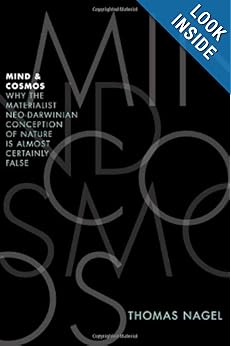 Mark Vernon of The Guardian explains the crimes of Mind & Cosmos and adds:
Mark Vernon of The Guardian explains the crimes of Mind & Cosmos and adds:
Disparagement is particularly unfair, though, because the book is a model of carefulness, sobriety and reason. If reading Sheldrake feels daring, Tallis thrilling and Fodor worthwhile but hard work, reading Nagel feels like opening the door on to a tidy, sunny room that you didn’t know existed. It is as if his heart said to his head, I can’t help but feel that materialist reductionism isn’t right. And his head said to his heart, OK: let’s take a fresh look. So what caused the offence?
Several things, but consider one: the contention that evolution may tend towards consciousness. Nagel is explicit that he himself is not countenancing a designer. Rather, he wonders whether science needs to entertain the possibility that a teleological trend is immanent in nature.
But that’s enough to hang him right then and there.
According to James Kushiner at Salvo, it gets way worse:
Nagel sees serious “problems of probability.” Then he commits his second sin:
In thinking about these questions, I have been stimulated by criticisms of the prevailing scientific world picture from a very different direction: the attack on Darwinism mounted in recent years . . . by the defenders of intelligent design. . . . [T]he problems that these iconoclasts pose for the orthodox scientific consensus should be taken seriously. They do not deserve the scorn with which they are commonly met. It is manifestly unfair.
It gets worse. Nagel also tells his readers that “the defenders of intelligent design deserve our gratitude.”
Maybe they should hang his laptop too. And his hat.